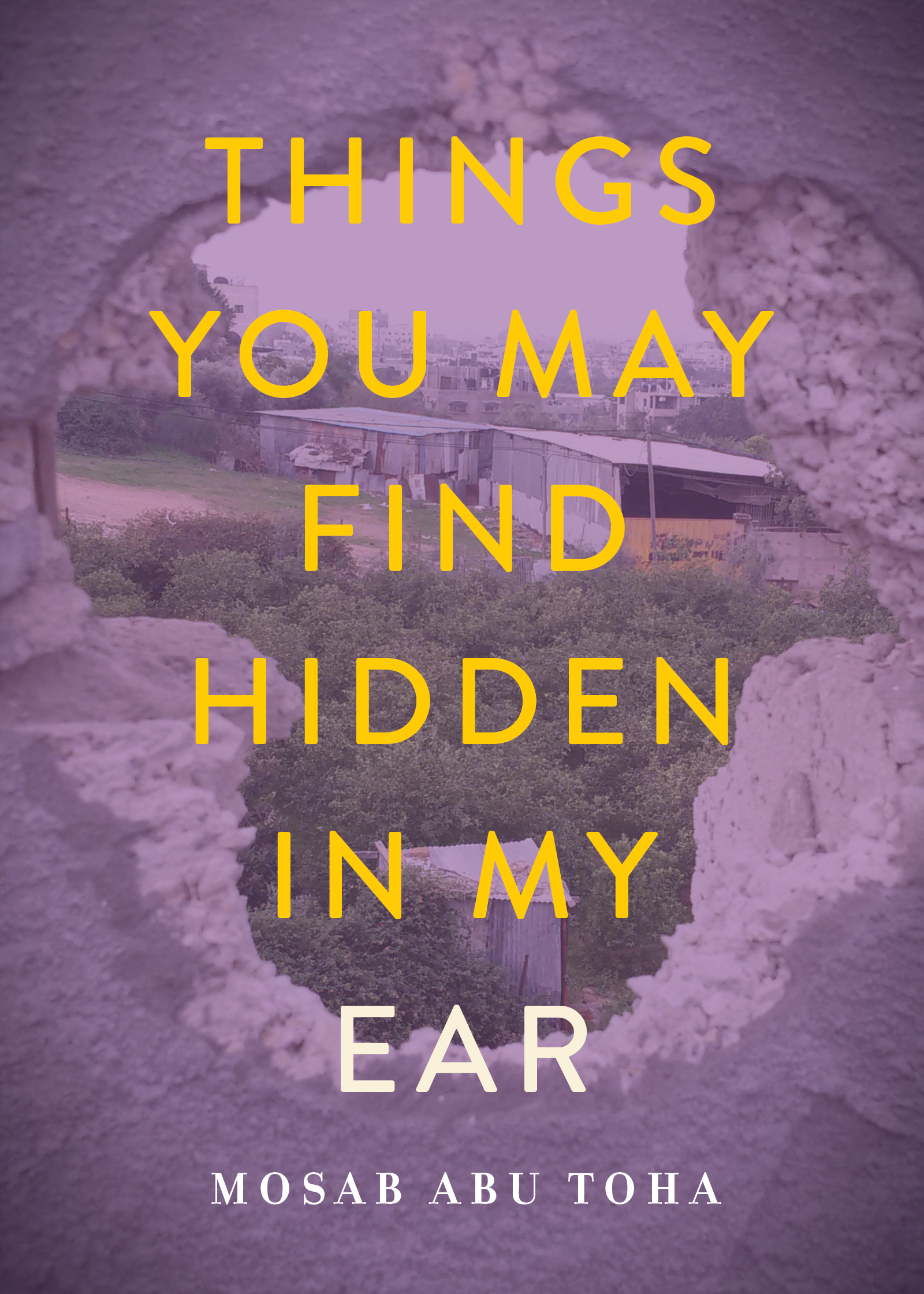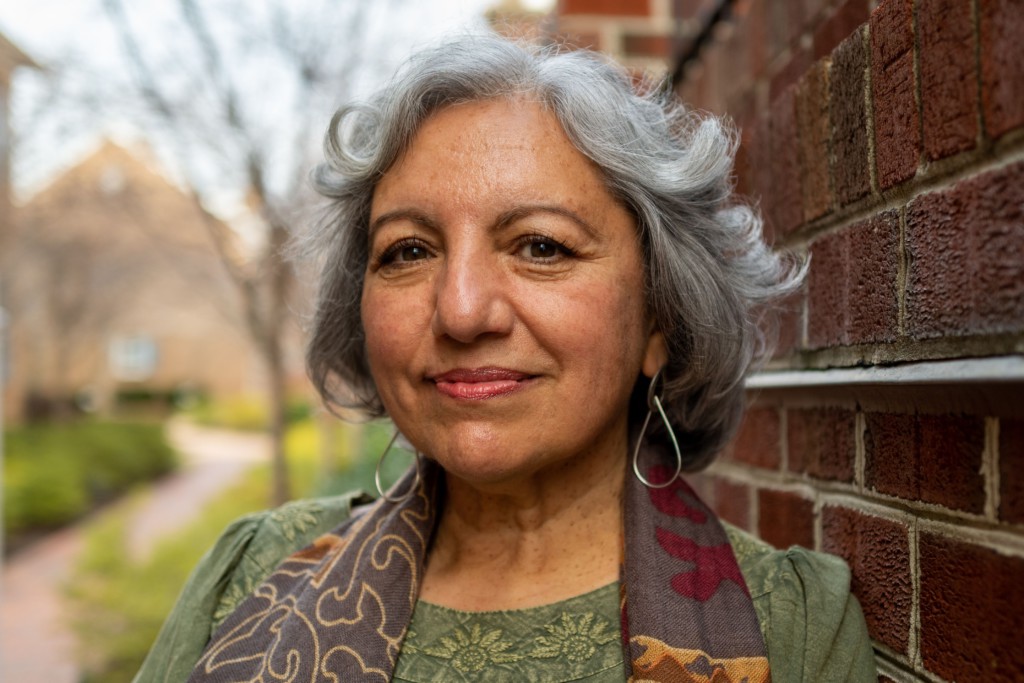
To read poetry from and about Gaza in these times is an act of solidarity, or perhaps even one of resistance. After all, a genocide* has been unfolding in the enclave by the Mediterranean Sea and the world has been unable – or unwilling – to do anything about it. Poetry is indeed political; it can dig below the surface of the human condition while exposing uncomfortable truths.
So it is with Mosab Abu Toha’s debut poetry collection, Things You May Find Hidden in My Ear. Published in 2022, Abu Toha’s book has likely seen a resurgence of interest as a result of Israel’s current war on Gaza. The fact that the poet drew international attention in November 2023 after being abducted, detained, and beaten by the Israeli army, then released to leave Gaza with his family, has deepened the awareness of his and Gaza’s – and all of Palestine’s – unjustifiable plight.
On Gaza, & Beginnings
Because Gaza has experienced numerous Israeli assaults (2008-9, 2012, 2014, 2021, and 2022) in addition to the present war, Gazan poetry of suffering and dispossession sadly continues to be relevant and powerful and, in a sense, timeless. Abu Toha’s poems about previous Israeli attacks ring true today.
In an interview on 11 January 2023, he declares, ‘My voice is the voice of the anguished, and the voice of the survivor, and the witness.’ The majority of the poems in his book are written in the first person singular but widen their perspective to the collective ‘we’ as well. There are poems about other people in Abu Toha’s life, and some imagined conversations with literary greats. Throughout, there are ongoing interrogations of identity, presence, displacement and connection in Abu-Toha’s utilization of the ‘I’, whose experience frequently overlaps with the poet’s own biography, while eliding that limitation to the wider experiences it speaks to, from and about. Though unpinnable to one singular speaker, this is certainly a work that carries and recreates the Palestinian voice of survival.
The book begins with ‘Palestine A-Z,’ a fresh take on an abecedarian poem:
A
An apple that fell from the table on a dark evening when man-
made lightning flashed through the kitchen, the streets, and the
sky, rattling the cupboards and breaking the dishes.
“Am” is the linking verb that follows “I” in the present tense when
I am no longer present, when I’m shattered.
‘P’ Is for Palestine
With this opening, Abu Toha introduces the autobiographical nature of his collection, and further, its themes of life and death, presence and non-presence, war and shattering. The motif of fragmentation appears throughout the book. Here, the ‘I’ is the apple – a simple and pure symbol of nature – that falls after unnatural violence fractures its world. ‘I’ and its linking verb ‘am’ are declarative and steadfast, yet the poet also recognizes that the present tense can be forcibly changed and devastated in an instant. The prosaic nature of this first section allows Abu Toha more liberties in expression, adding historical facts (for N: ‘In 2009, the Israelis targeted an ambulance with a nail bomb’) or political realities in Gaza (for Q: ‘Al-Quds is Arabic for Jerusalem. I have never been to al-Quds. It’s around 60 miles from Gaza. People who live 5,000 miles away can move there, while I cannot even visit.’). Some letters may be expected (K is for ‘key’, P for ‘Palestine’) but many take twists and turns to reify the author’s meaningful points. For example, one conjures the memory of dislocation (from Jaffa/Yaffa) as a result of the Nakba of 1948; for the letter Y, Abu Toha writes: ‘Yaffa is my daughter’s name. I put my ears near her mouth when she speaks, and I hear Yaffa’s sea, waves lapping against the shore.’ Both Yaffa, and the ‘daughter’ become entwined in their legacies, almost as shells of memory through which the speaker – or listener, rather – grieves.
To Speak, To Listen – The Reality in Gaza
Sensitively mining the author’s experiences of life in Gaza, many of the poems offer stories and personal reflections on war, siege, and destruction. In ‘Death Before Birth,’ Abu Toha writes, ‘People Die. / Others are born. / For us, / the fear of dying before living / haunts us while we are still / in our mothers’ wombs.’ The speaker refers to the experience of ‘us’ – the people of Gaza – as different from that of ‘Others’; nefarious forces have tried to normalize death and destruction as part of Gazans’ reality – that their fear of life ending starts before their lives even begin.
The dilemma of representation then, is further explored in ‘A Voice from Beneath,’ where the speaker acknowledges that this voice ‘[…] asks me / to stop writing heavy poems, / poems that have bombs and corpses, / destroyed houses and shrapnel-covered streets’. But to him, this ‘[…] voice takes away my voice.’
Abu Toha’s straightforward yet lyrical voice hits right to the core. The descriptions are sensory – as we watch a father ‘prepare milk […] with some qirshala [for his children] before school’ (‘Palestine A-Z’) or walk the streets with eight-year-old Abu Toha, only to be stunned by seeing the ‘Apache helicopter shoot a rocket into a building’ (‘Interview with the Author’). The title poem, ‘Things You May Find Hidden in My Ear,’ provides a grand aural experience for the reader. It echoes the mother’s voice, songs in Arabic, and poems in English:
The drone’s buzzing sound,
the roar of an F-16,
the screams of bombs falling on houses,
on fields, and on bodies,
of rockets flying away—
rid my tiny ear canal of them all.
After the speaker enjoins the ear doctor to eliminate these sounds of war from his hearing, with a semblance of hope, he then instructs her to ‘Inject the song of life into my veins to wake me up.’ Speaking (up, and out) is important here, but so too is the capacity for listening.
A Shattering, A Search – Scenes from Gaza
There are nine full color photographs in the middle of the book taken by the poet. They depict scenes from Gaza with poetic captions, such as a broken mirror with an image of Abu Toha and the words, ‘Where is the rest of me? Shattered in pieces.’ The poet later invokes towering literary figures, such as Palestinian authors Ghassan Kanafani and Mahmoud Darwish, for whom Abu Toha has written haunting poems with themes that revolve around death and loss. It’s as though he sees himself in these iconic Palestinian authors: Kanafani wrote about the Palestinians’ fraught attempts to return to their homes, and later he was assassinated by Israel’s Mossad; and in a poem ‘To Mahmoud Darwish’, who lived much of his life in exile, Darwish ‘looks at himself in the mirror’ twice, reminding us of Abu Toha’s shattered mirror and the legacies the younger poet strives to piece back together. A searing poem, titled ‘Edward Said, Noam Chomsky, and Theodor Adorno in Gaza,’ reflects similar tropes: ‘Edward Said is out of place, / again […] Chomsky, innately, repairs / the wounded words, […] Adorno tries to study the music / of the falling bomb / and shattering glass.’ Continuing with the theme of being ‘out of place’ (which is the title of Edward Said’s memoir), Abu Toha devotes a poem to the memory of Said, titled ‘Displaced’, with the words, ‘I am neither in nor out. / I am in between. […] But I will remain / where I am.’
There is indeed a feeling of steadfastness in Abu Toha’s collection, despite the myriad dangers and challenges meted out by life in Gaza (words like ‘war’, ‘bomb,’ ‘shrapnel’, ‘attack’, ‘wound’ and ‘death’ occur frequently). He embraces the experiences of both war and wonder simultaneously; there is a hopefulness that reflects a wholeness in his approach and a deep, multilayered conception of life, family, culture and nature. He explains, ‘I want everyone to know what it means to be living in Gaza, to be living in Palestine, to be thinking about death even while you are looking at flowers and looking at the sun in the sky.’
To Look – ‘The Mosab I Could Have Been’
‘The Wounds’ stands out in this collection, illustrating a sixteen-year-old’s first-hand experience of war, in long form. It describes the 2008-09 Israeli aggression and recounts scenes of carnage, including violent deaths of people he knew. In what was initially a trip to the store to buy eggs, the teen is wounded by shrapnel in his neck and shoulder. He shares an ambulance ride with a corpse – ‘The body burnt, maybe no head. I don’t look at it. / The smell is so bad. I’m so sorry, whoever you are.’ But Abu Toha (and consequently his reader) must look, while he recounts human fragmentation and dismemberment all around him.
The last section of the book features an interview with Abu Toha by the scholar Ammiel Alcalay. We learn more about Abu Toha’s family and their history of loss and dispossession, what was missing from childhood as the young Mosab lived under siege, and his thoughts about what his life could have been like. He says: ‘[…] there are many Mosabs in the world—the Mosab who was born in Gaza in al-Shati Camp; the Mosab I could have been if my grandparents were not expelled from Jaffa.’ Later he adds: ‘[…] I sometimes feel sad because I tell myself: maybe I can give my kids the things that I wish my parents had given me. But I just can’t do it. I cannot protect them during Israeli attacks’. The decision to include an ‘Interview with the Author’ in the collection sets it apart from many poetry books; whether neatly biographical or constructed identities, or somewhere in between, the voices in this book are critically real, borne from unimaginable experience.
Abu Toha’s collection is important, not only because of its timeliness in the context of world events, but also because of this writer’s masterful poetic rendering of profound experiences. His book won the American Book Award, the Palestine Book Award, and Arrowsmith Press’s 2023 Derek Walcott Poetry Prize. His poems weave shattering and wholeness, destruction and hope, a hard existence and imagination. They form mirrors to trauma and loss, but they do not fall into self-pity or resignation; rather, these poems testify to a young man’s valiant endeavor to make sense of, record and recreate the story of his tumultuous life in Gaza and further, to honour, raise and carry the Palestinian voice. A stateless agent and a witness, Abu Toha employs words that sear and enlighten. As he says in his interview with Alcalay, ‘The story that we are living here is something like an epic.’
*Artistic Director Note: The use of the word ‘genocide’ here is a subjective interpretation. The International Court of Justice’s wording is: “The Court considers that, in conformity with its obligations under the Genocide Convention, Israel must immediately halt its military offensive” – International Court of Justice, 24 May 2024, read the ICJ Prevention of Genocide Summary here

Zeina Azzam is a Palestinian American poet, writer, editor, and community activist. She serves as the poet laureate of the City of Alexandria, Virginia, for 2022-25. Her full-length poetry collection, Some Things Never Leave You, was published in 2023 and her chapbook, Bayna Bayna, In-Between, in 2021. She has been nominated twice for a Pushcart Prize. www.zeinaazzam.com
Photo credit: Jeff Norman
Add your Reply
You must be logged in to post a comment.